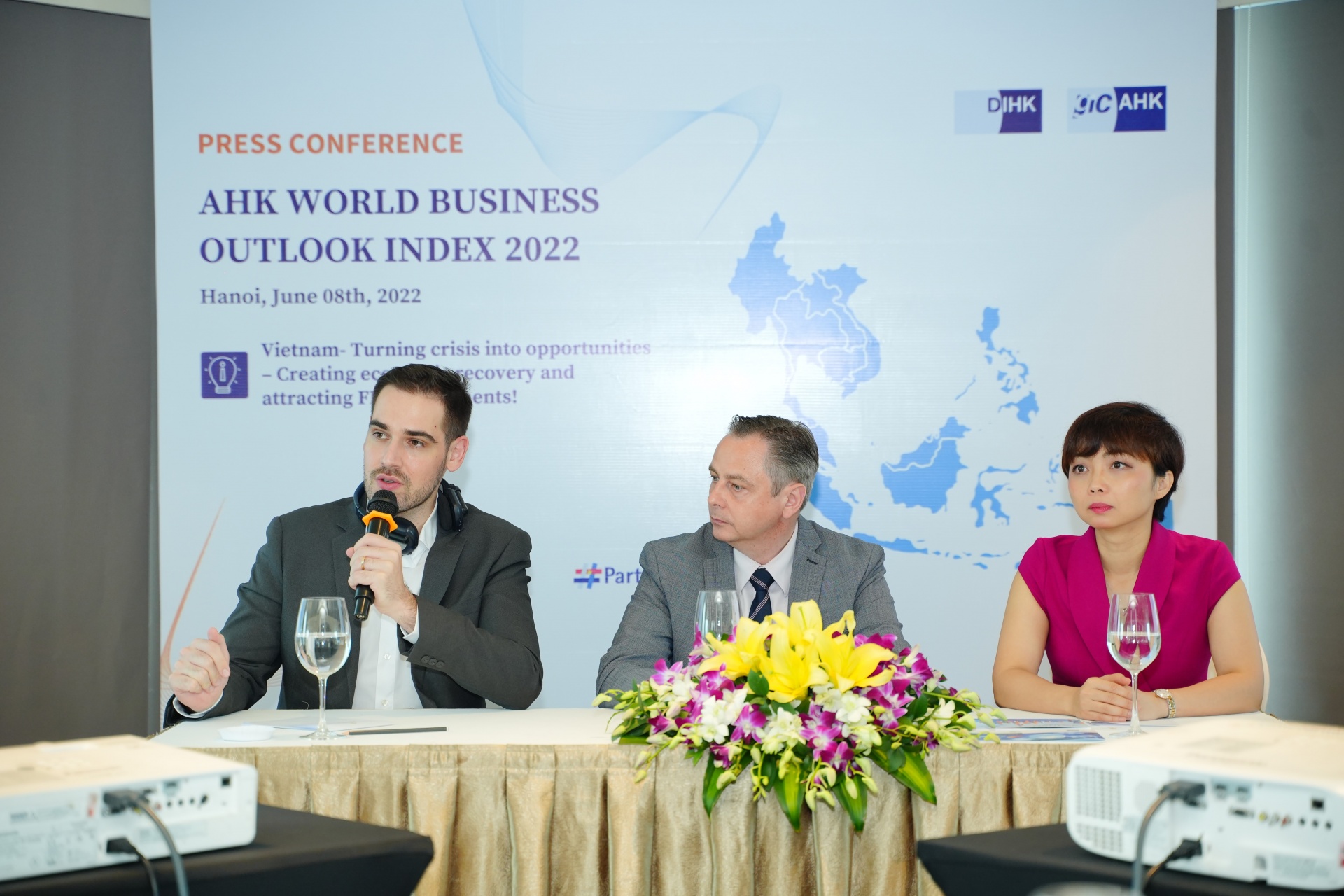German groups continue to invest in Vietnam with improved confidence
 |
| German firms continue to invest in Vietnam with improved confidence |
According to a recent survey conducted by the German Chambers of Commerce Abroad, German businesses express more confidence in their business development and have more positive expectations of economic growth than they did in the autumn.
Nearly 93 per cent of German companies will continue to invest in Vietnam and over 64 per cent of them expect their business to develop further over the next 12 months.
Vietnam’s border reopening and the government’s drastic and timely policies have boosted the post-pandemic economic recovery.
Over 46 per cent of Greman businesses plan to recruit more employees in the coming year. The surveyed organisations also demonstrate that the most important factors for their trade and investment decisions in Vietnam are political stability, the availability of skilled workers in technical and non-technical fields, and transport and logistics.
Thanks to Vietnam’s participation in free trade agreements (FTA), the country has favourable conditions to attract foreign direct investment flows. More than 73 per cent of German businesses believe that the implementation of the EU-Vietnam FTA from August 2020 increases their competitiveness in the nation.
They regularly leverage the ASEAN-China FTA and the Comprehensive and Progressive Agreement for Trans-Pacific Partnership. When implementing their business activities in Vietnam, they evaluate the importance of the availability of skilled labour in technical fields (58.3 per cent), the quality of education in technical fields (58.3 per cent), and tariff trade barriers (56.5 per cent).
Although German enterprises have shown resilience in the post-pandemic recovery, they are facing risks caused by global uncertainties that make them more concerned about their business development in the coming year.
Currently, they think the greatest risk is the price of raw materials, followed by energy costs, the shortage of a skilled labour force, and supply chain and logistics disruptions.
These result in changes in their international investment activities including adjusted risk assessments and the economic decoupling of world regions.
What the stars mean:
★ Poor ★ ★ Promising ★★★ Good ★★★★ Very good ★★★★★ Exceptional
Related Contents
Latest News
More News
- Kurz Vietnam expands Gia Lai factory (February 27, 2026 | 16:37)
- SK Innovation-led consortium wins $2.3 billion LNG project in Nghe An (February 25, 2026 | 07:56)
- THACO opens $70 million manufacturing complex in Danang (February 25, 2026 | 07:54)
- Phu Quoc International Airport expansion approved to meet rising demand (February 24, 2026 | 10:00)
- Bac Giang International Logistics Centre faces land clearance barrier (February 24, 2026 | 08:00)
- Bright prospects abound in European investment (February 19, 2026 | 20:27)
- Internal strengths attest to commitment to progress (February 19, 2026 | 20:13)
- Vietnam, New Zealand seek level-up in ties (February 19, 2026 | 18:06)
- Untapped potential in relations with Indonesia (February 19, 2026 | 17:56)
- German strengths match Vietnamese aspirations (February 19, 2026 | 17:40)

 Tag:
Tag:




















 Mobile Version
Mobile Version